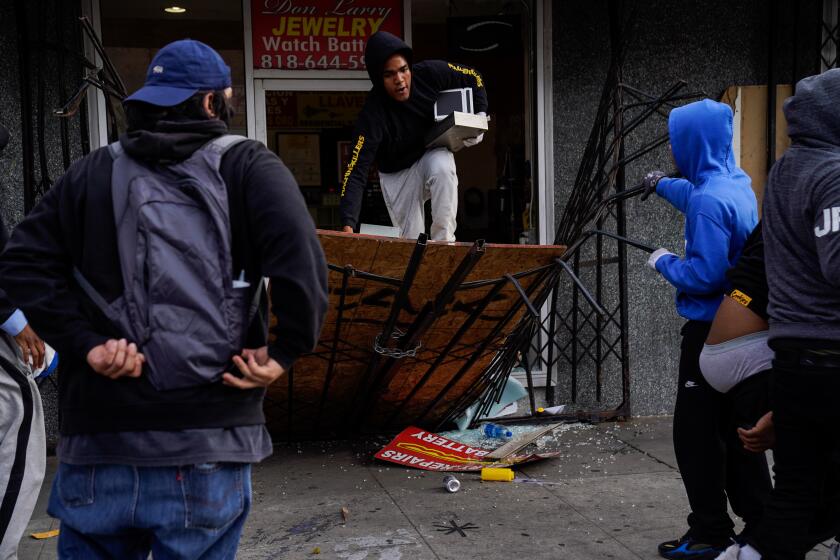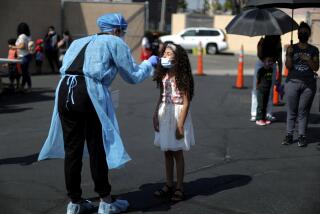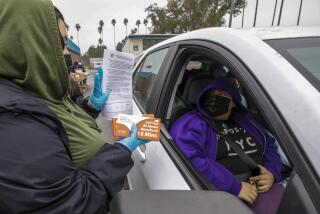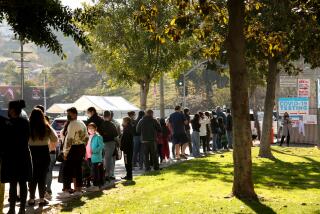L.A. County reports 60 new coronavirus deaths as testing sites close for second day amid protests
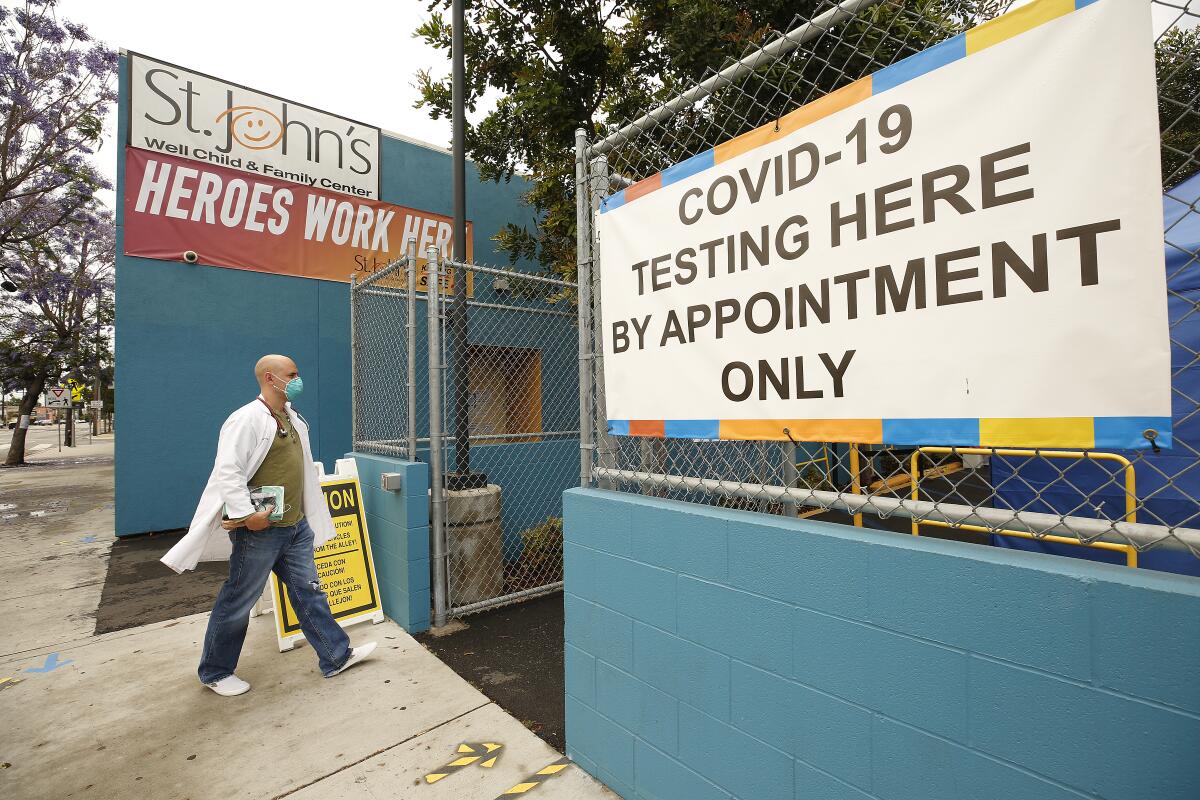
- Share via
Ongoing protests over the death of George Floyd have momentarily halted progress in Los Angeles County’s fight against COVID-19 as several test sites have been closed or have modified their hours.
Los Angeles County officials have long stressed the need for residents to be tested for the coronavirus in an effort to prevent its spread, especially as more restrictions have been lifted in the county.
“We are continuing to ensure that our testing sites are safe for both patients and staff. Testing remains a priority as we continue to fight the spread of coronavirus in L.A. County,” said Dr. Christina Ghaly, director of the Los Angeles County Department of Health Services.
In Los Angeles, Dodger Stadium and Kedren Community Health Center remain the only sites where city officials will conduct tests Tuesday, after others have been shut down. Officials hope to reopen test centers Wednesday.
The county and city of Los Angeles oversee 30 testing sites, which are separate from a handful of state-run and independent locations throughout the area. At least 20 of those sites have been affected. Residents who had an appointment for tests were notified via phone or email, officials said. Those seeking appointments should check the county or city website for available appointments, or reach out to their medical practitioner.
Officials reported Tuesday an additional 60 deaths and 1,202 new cases. More than 57,000 people have been infected by the virus in L.A. County and 2,443 have died. Black communities have been hit especially hard, a reality that Los Angeles County Public Health Director Barbara Ferrer said Monday is tied to a system of unequal healthcare access that hurts marginalized communities. Ferrer said it was impossible to separate that inequality from the outrage over the death of Floyd, a black man in Minneapolis, in the custody of a police officer.
The coronavirus crisis is ongoing, officials said. Without a vaccine or medical therapies to combat the disease, changed behavior, including social distancing and masks, has led to modest improvements in slowing the virus’ impact.
But as crowds take to the streets and forego social distancing practices, it’s unclear if the virus will intensify its spread.
“I’m always worried about a surge,” Ferrer said Monday when asked whether she feared the protests could lead to an uptick in cases.
Political protest is one of two large gatherings allowed under the state and county order. The other is gatherings for religious worship.
Public health officials have instructed people, including protesters, to continue wearing face masks while in public and to maintain a six-foot distance from those in other households.
“Protesters who have had close contact with nonhousehold members not wearing face coverings, should when possible, self-quarantine at their residence for 14 days and monitor themselves for COVID-19 symptoms. If they develop symptoms, they should call their healthcare provider and consider testing,” officials said in a statement Tuesday.
Testing capacity has been one of the top priorities set by Gov. Gavin Newsom in allowing counties to ease stay-at-home restrictions. In L.A. County, officials were scrutinized for the lack of testing availability when the pandemic began. But in recent weeks, the county has expanded testing sites and has allowed all residents, both symptomatic and asymptomatic, to get tested in an effort to better understand the impact of the virus and prevent its widespread effects.
To date, nearly 612,000 of the county’s 10 million residents have been tested for the virus. Of those individuals, 8% have tested positive.
The county implemented a state of emergency Saturday night, just one day after allowing hair salons, barbershops and restaurants to fully reopen. Counties throughout the state have continued to ease modifications.
In Santa Clara County, officials announced that all in-store retail, outdoor dining, manufacturing, small service businesses, childcare and summer programs will be allowed to resume Friday.
“As a community and as a nation, we are experiencing some of the most difficult and challenging times many of us have ever experienced,” said County Health Officer Dr. Sara Cody. “The COVID-19 virus has had an impact on every aspect of our lives. It has been particularly devastating to low income communities and communities of color in our county and across our state and nation. This has been compounded by structural inequities that exist in our society that are unjust, persistent and damaging.”
The county pointed to increased testing as a key metric in its decision to continue lifting modifications.
More to Read
Sign up for Essential California
The most important California stories and recommendations in your inbox every morning.
You may occasionally receive promotional content from the Los Angeles Times.
